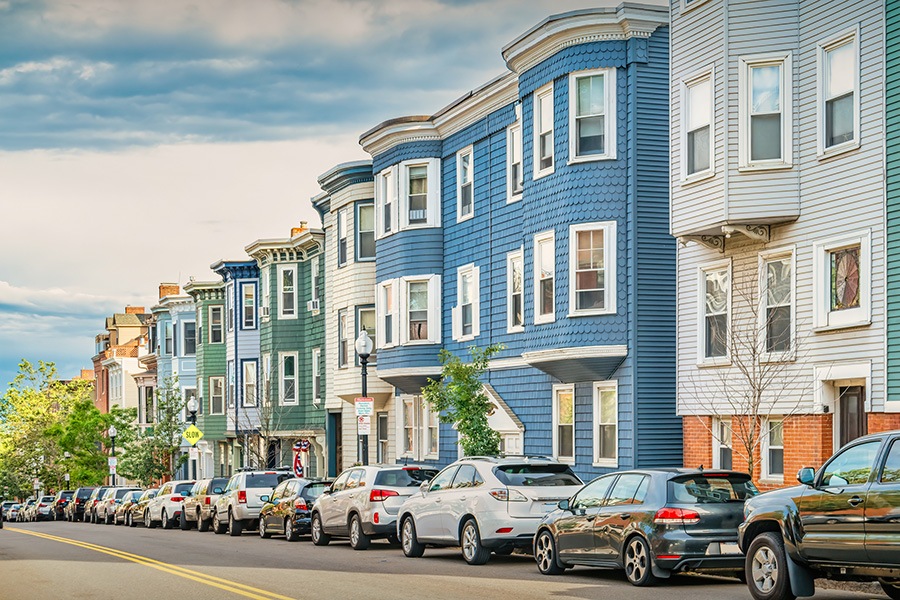A New Study Lays Out How Bad Home Prices Got over Just One Year around Boston
It's not just you: The income needed to afford a home in Greater Boston has increased a lot over the last year.

Photo via Getty Images/benedek
Owning a home in the Boston area has long come with a hefty price tag. But lately it seems like everyone has a story about getting priced out of the market. How bad has it gotten, really? The stories may seem exaggerated, but the numbers don’t lie: Things have gotten worse. According to numbers from the Joint Center for Housing Studies of Harvard, homeowners need to make $48,000 more than they did even a year ago just to afford the average Greater Boston home.
The JCHS released a report last week on the state of the nation’s housing and found that the median home price in Greater Boston was $659,161 as of April 2022 (this includes homes in Boston proper, Cambridge, Newton, and surrounding suburbs). Assuming you have a 3.5 percent down payment, a 30-year mortgage, and are spending no more than a third of your income on said mortgage, you’d need to make $181,254 to make that monthly payment.
To put this into perspective: In 2021, you needed to make about $133,295 to afford your typical Boston area home, which had a median price of $570,742. If you do the math, this means the median home price increased by $89,000 over the course of one single year. Census data shows the median household income in the area is $93,537, so basically, this jump in home prices represents almost an entire household’s yearly income. And worse: Greater Boston’s median income is 1.4 times the median income for the U.S. Yet it’s still not enough to keep up with rising home prices here.
Even more sobering is looking at how this data has evolved over the last few years. In 2019, the median home price was $489,340, requiring a household income of $125,402 to afford your average place. Even when the median home price increased to $507,597 in 2020, the average income needed went down to $121,096, thanks to a dip in interest rates between 2019 and 2020.
Alexander Hermann, a lead author of the report and senior researcher for the JCHS, says interest rates affect affordability (which is why it was more affordable to buy a home in 2020 than it was 2019, despite home prices going up). But when interest rates dropped, many decided to leap at the chance to lock in that rate, leading to fierce competition over the limited available housing stock. And as we all know, money talks, leading to people paying high prices to get a home they call their own.
“We’ve been experiencing a rapid and robust home price growth for most of the pandemic and even before the pandemic,” Hermann says. “But it’s record low interest rates for 2020 and most of 2021 that allowed buyers to keep payments relatively affordable. We weren’t seeing the rapid rise in costs that we’re seeing now…Things changed to some extent when interest rates rise…(they can) take a toll and help deteriorate affordability.”
There’s some cold comfort to be taken from the report: It’s not just us. Hermann said at least two-thirds of the nation’s top housing markets experienced record-high appreciation over the last year. And while prices might not go down, Hermann said rising interest rates might help slow growth. And if you didn’t increase your household income by a breezy $48,000 over the last year, you might find some relief looking elsewhere for the home of your dreams. The income needed for a home in the Providence metro area (including southern Mass. suburbs) is still around $121,000, while households in Worcester only need about $115,000 to afford the average abode there. Costs are even cheaper in the western part of the state, where you only need a household income in the five figures to afford a home—imagine! Just don’t go looking on the Cape, where you need to make about $188,000 to afford one of those dreamy coastal homes.
In short, it’s not you: It really is brutal out there.


